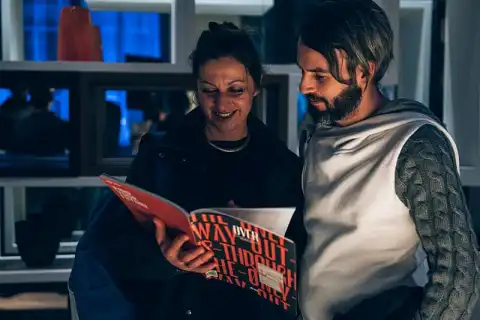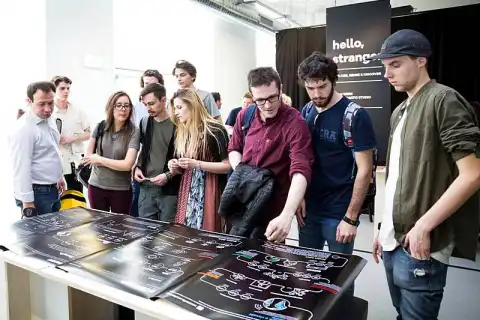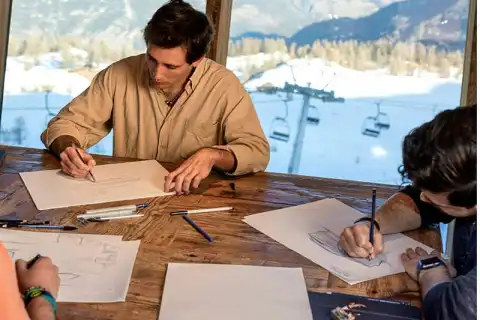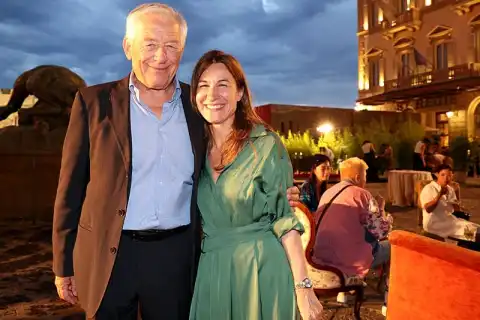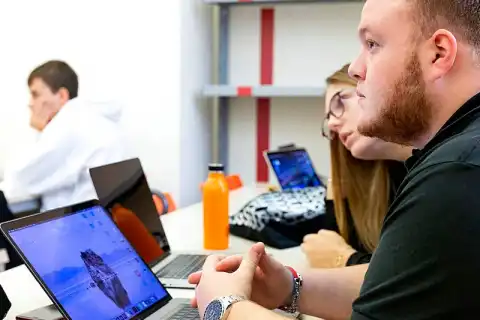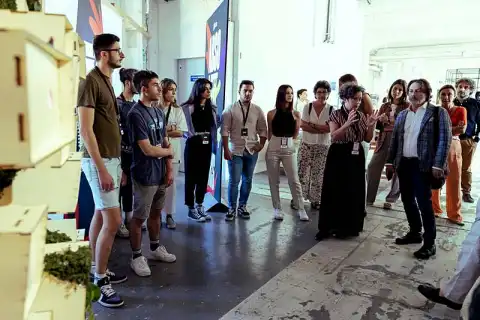Master - Design for Interaction and Extended Experiences
- 1 year
- Duration
- 15,100 EUR
- Price
- January
- Start
- October
- Deadline
- Master
- Degree
- Campus
- Format
- Barcelona / Spain
- Location
Program description
In response to the ever-changing nature of design as a field, this program brings together cutting-edge techniques in interactive applications such as virtual, augmented, and extended reality, digital fabrication, video mapping, sound design, artificial intelligence generative tools, and principles of interaction and immersive design.
Students are able to produce in a variety of mediums, including installation art, game design, physical locations, and digital interfaces, thanks to the course's multidisciplinary approach, which promotes the investigation of both digital and physical settings.
By giving students the freedom to explore issues that are important to them, this course encourages them to find their professional voices.
Encouraging students to be both makers and thinkers, the course fosters an ongoing dialogue between study and practice while also encouraging curiosity, experimentation, and empathy-based collaborative abilities.
Program structure
CONTEXT MODULE — Interaction Design and Immersive Experiences Foundation
- Introduction to Interaction and Immersive Design
- Digital culture: history and evolution
- Basic principles
- Immersive Technologies in Design
- AR and VR exploration
- Relevant tools and platforms
- Emerging Trends in Immersive Technologies
- Exploring future technologies
- Adapting to changes and developments
PROCESS MODULE — Design Process and Methodology
- User Experience Design
- Comprehensive design methodology
- Application of systemic thinking in design
- Development and implementation of design strategies
- UX Research
- In-depth study of various research methods
- Mastering the art of conducting interviews and user testing
- Techniques for analysing insights and mapping user needs
- Project Management
- Implementing an agile approach in design projects
- Understanding and managing the project lifecycle
- Dealing with project constraints and risk management
PROTOTYPING MODULE — Design Practice and Experimentation
- Rapid Prototyping
- Tools and techniques for prototyping
- Prototype evaluation
- 3D printing
- Development of Immersive Experiences
- VR and AR programming and development
- Integration of interactive and experiential elements
- Video mapping
- Sound design
- Phygital interfaces
- 3D modelling
INNOVATION MODULE — New Frontiers
- Responsible Design
- Sustainability
- Design ethics
- Accessibility and inclusion
- Future Foresight
- Trends
- Speculative design
- Emerging technologies
- Generative AI
- Creative coding
- Web3
VALIDATION MODULE — Projects
- Mentorship
- 1:1 Sessions with tutors and coordinators
- Preparation for Professional Opportunities:
- Public speaking
- Personal branding
- Business and entrepreneurship
Price
Fee for 11 months education is 15100.00 EUR for international students
Requirements for applicants
Entry Requirements
All candidates must submit the following documentation to enter the validation process:
- 2 years of professional experience after the completion of university studies.
- Motivation letter and CV in English specifying language levels and computer skills.
- Intermediate level of English, corresponding to TOEFL 550 or IELTS 6.5. In all other cases or for candidates with no qualifications, a face-to-face or Skype interview is required to assess their level.
About the university
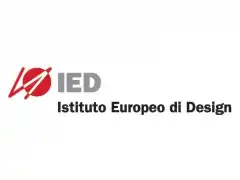
Since 1966, we have been the largest Higher Education Network in the creative area to keep both a worldwide perspective and a strongly Italian cultural matrix.
Our educational strategy has evolved over time, but at its core remains the same: we mix theoretical study with hands-on experience and the expertise of working experts. One of the things we emphasize in our classes is always thinking ahead, in the here and now. We are a diverse, multidisciplinary institution that views design as a tool for social transformation.
Among the many international academic networks in which we participate are Cumulus, Elia, and WDO, just to name a few.
Campuses
In the 1970s and 1980s, we expanded to Rome (1973), Cagliari (1984), and Turin (1989) in Italy.
Beginning in 1994 with the Madrid campus and continuing on to Barcelona in 2002, Spain's modern era began in the 1990s.
The Group also spread internationally, establishing a presence in Sao Paulo, Brazil, in 2005, and then in Venice, Italy, in 2007, Florence, Italy, in 2009, and Como, Italy, in 2009, with the acquisition of the Aldo Galli Academy of Fine Arts. The Group expanded its footprint in Brazil in 2014 by renovating the Cassino da Urca and opening a campus in Rio de Janeiro; in 2020, the Group will expand its presence in Spain by purchasing the Centro Superior de Diseo Kunsthal in Bilbao.
Read more about IED Istituto Europeo di Design, Italy, Spain, Brazil
